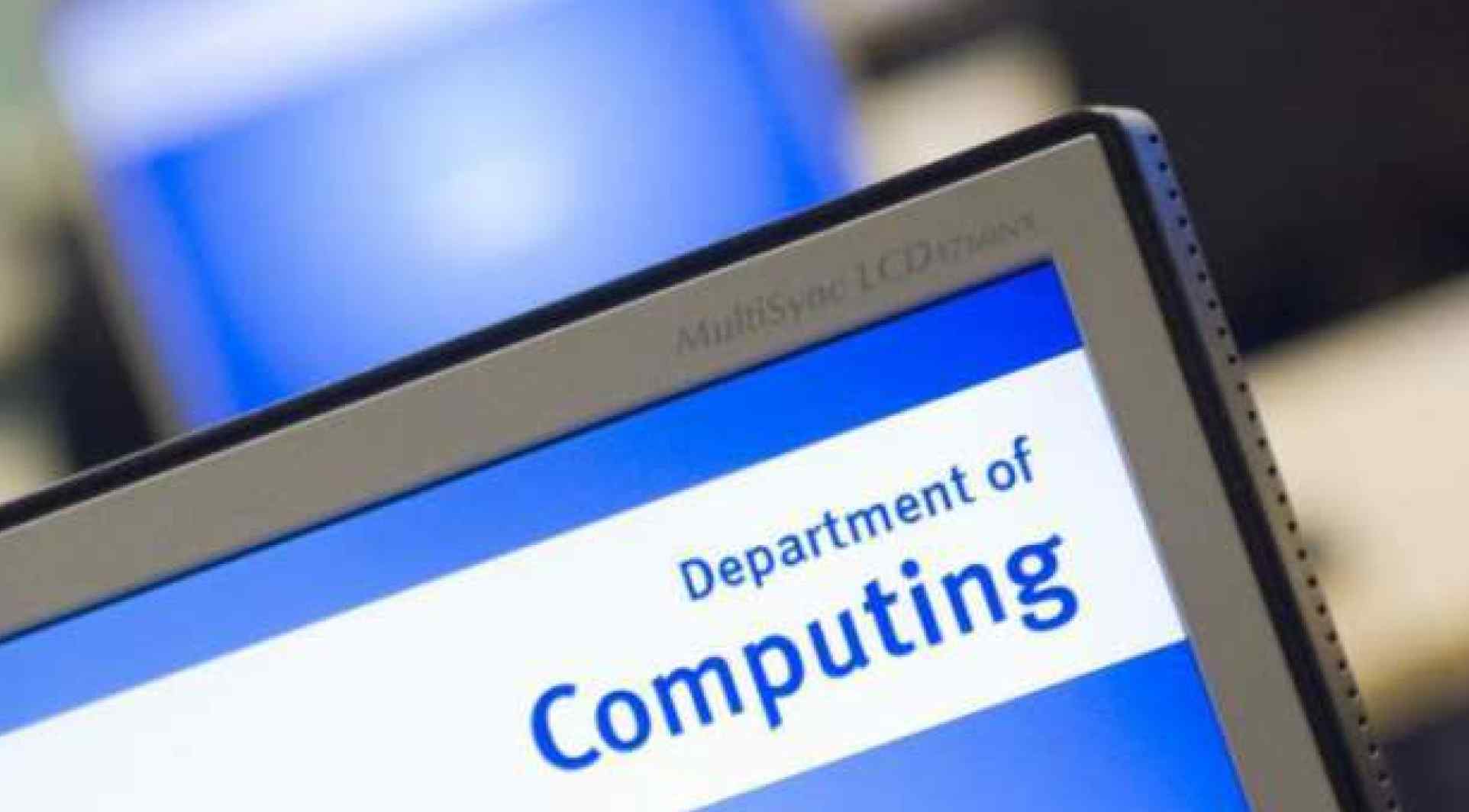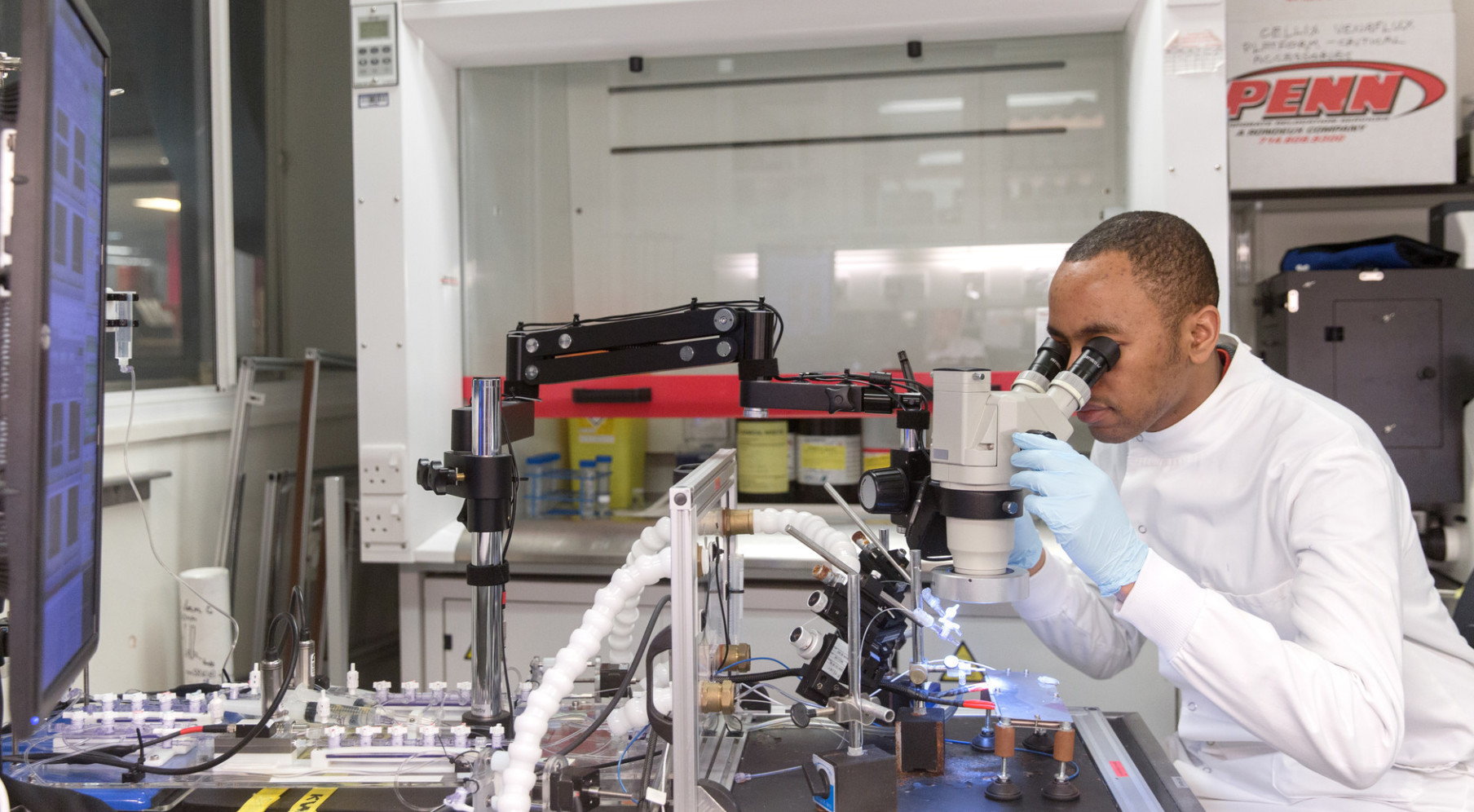MSc Artificial Intelligence

A new intensive Master's degree exploring the techniques and applications of artificial intelligence.
Key information
Overview
Our Master’s degree in Artificial Intelligence (AI) is aimed at mathematically-minded STEM graduates.
It delivers intensive training in programming and the fundamentals of artificial intelligence through a range of specialist modules.
As well as learning the technical skills required for this rapidly growing area of computing science, you have the chance to explore realistic applications through group and individual projects. The Department has contacts with major technology companies, perfect for opportunities within industry-initiated projects.
Choosing the right course for you
This degree is a specialised degree for non-computer scientists, with modules that are all focused on several areas of AI technologies and applications, to ensure you graduate with a focused body of knowledge in this area.
We also offer MSc Computing (Artificial Intelligence and Machine Learning) for students with a substantial background in computing and who wish to possibly explore other areas of computing alongside specialised options in artificial intelligence and machine learning.
Study programme
Your studies include specialised intensive training in programming and AI.
In addition to your core modules, you can choose from a wide range of optional modules during the Autumn and Spring terms. This allows you to tailor choices to your interests.
You will undertake two projects as part of your course:
- A group project introduces you to state-of-the-art methods in software engineering, presenting well-proven techniques for managing real software projects.
- A large specialised individual project, which runs in the Summer term.
You have opportunities to do both the group and individual projects with leading companies working on applications of AI.
Careers
AI is a key growth area aiming, among other things, to automate the completion of highly complex tasks and increase productivity.
As a result, AI has broad application in a variety of industries and is already a growing part of many existing industries.
The specialist nature of this degree will provide you with the skills to meet the needs of the industries that are recognising the transformative potential of AI, from healthcare to manufacturing to the automotive industry (driverless cars).
Structure
This page reflects the latest version of the curriculum for this year of entry. However, this information is subject to change.
The curriculum of this programme is currently being reviewed as part of a College-wide process to introduce a standardised modular structure. As a result, the content and assessment structures of this course may change for this year of entry.
We recommend you check this page before finalising your application and again before accepting your offer. We will update this page as soon as any changes are confirmed by the College.
Find out more about the limited circumstances in which we may need to make changes to or in relation to our courses, the type of changes we may make and how we will tell you about any changes made.
Page last reviewed on 10 March 2022.
Structure
Core modules
You take all of the core modules below:
- Python Programming
- MSc Software Engineering Practice and Group Project
- Ethics, Privacy, AI in Society
- Introduction to Symbolic Artificial Intelligence
- Introduction to Machine Learning
- Individual Project
Optional modules
In addition to your core modules, you will choose five optional modules in total. At most, one of these options can be from Group 2.
This list is indicative of the choices you can expect. Your options may differ from those listed below.
Group 1
- Computer Vision
- Robotics
- Reinforcement Learning
- Computational Optimisation
- Mathematics for Machine Learning
- Modal Logic for Strategic Reasoning in AI
- Logic-Based Learning
- Deep Learning
- Knowledge Representation
- Probabilistic Inference
- Natural Language Processing
- Robot Learning and Control
Group 2
- Computational Finance
- Principles of Distributed Ledgers
- Decentralised Finance
Extracurricular
These not for credit modules are also offered.
- MSc Introduction to Prolog
- Introduction to C++ Programming
Teaching and assessment
Teaching methods
- Group project
- Individual project
- Laboratory
- Lectures
- Seminars
- Tutorials
Assessment methods
- Coursework
- Laboratory exercises
- Laboratory-based examinations
- Paper-based examinations
Entry requirements
We welcome students from all over the world and consider all applicants on an individual basis.
Entry requirements
Minimum academic requirement
Our minimum requirement is a first-class degree in mathematics, physics, engineering or other degree with substantial mathematics content.
International qualifications
We also accept a wide variety of international qualifications.
The academic requirement above is for applicants who hold or who are working towards a UK qualification.
For guidance see our Country Index though please note that the standards listed are the minimum for entry to the College, and not specifically this Department.
If you have any questions about admissions and the standard required for the qualification you hold or are currently studying then please contact the relevant admissions team.
English language requirement (all applicants)
All candidates must demonstrate a minimum level of English language proficiency for admission to the College.
For admission to this course, you must achieve the higher College requirement in the appropriate English language qualification. For details of the minimum grades required to achieve this requirement, please see the English language requirements for postgraduate applicants.
How to apply
Making an application
Apply online
All applicants must apply online.
Visit our Admissions website for details on the application process.
You can submit one application form per year of entry. You can usually choose up to two courses.
Application fee
If you are applying for a taught Master’s course, you will need to pay an application fee before submitting your application.
The fee applies per application and not per course:
- £80 for taught Master's applications (excluding MBAs)
- £135 for MBA applications
There is no application fee for MRes courses, Postgraduate Certificates, Postgraduate Diplomas or research courses, such as PhDs and EngDs.
If you are facing financial hardship and are unable to pay the application fee, we encourage you to apply for our application fee waiver.
ATAS certificate (overseas candidates)
An ATAS certificate is not required for overseas students applying for this course.
Further questions?
Find answers to your questions about admissions. Answers cover COVID-19, English language requirements, visas and more.
Tuition fees and funding
The level of tuition fees you pay is based on your fee status, which we assess based on UK government legislation.
Find out more about fees and funding opportunities.
Tuition fees
Home rate of tuition
2022 entry
£19,450
Fees are charged by year of entry to the College and not year of study.
Except where otherwise indicated, the fees for students on courses lasting more than one year will increase annually by an amount linked to inflation, including for part-time students on modular programmes. The measure of inflation used will be the Retail Price Index (RPI) value in the April of the calendar year in which the academic session starts e.g. the RPI value in April 2022 will apply to fees for the academic year 2022–2023.
Fee status
Whether you pay the Home fee depends on your fee status.
Your fee status is assessed based on UK Government legislation and includes things like where you live and your nationality or residency status.
Find out more about how we assess your fee status.
EU/EEA/Swiss students
The Government has confirmed that EU/EEA/Swiss students who begin a course before the 31 July 2021 will be eligible to pay the same fee as Home students and have access to student finance for the duration of their course, as long as they meet certain requirements which are unchanged from previous years. This includes students who begin the course remotely.
EU/EEA/Swiss students starting a course on or after 1 August 2021 will no longer be eligible for the Home fee rate and so will be charged the Overseas fee. Please note we do not expect this to apply to Irish students or students benefitting from Citizens' rights under the EU Withdrawal Agreement, EEA EFTA Separation Agreement or Swiss Citizens’ Rights Agreement respectively. However, we are currently awaiting the formal publication of the amended Fees and Awards regulations.
The UK Council for International Student Affairs (UKCISA) website has useful information on the conditions you currently need to meet to be entitled to pay tuition fees at the Home rate for study on a higher education course in England and reflect the regulations as they currently stand (not the amended regulations which are subject to publication).
UKCISA has also provided some information in response to Questions for students starting their course from the 1 August 2021.
Overseas rate of tuition
2022 entry
£36,500
Fees are charged by year of entry to the College and not year of study.
Except where otherwise indicated, the fees for students on courses lasting more than one year will increase annually by an amount linked to inflation, including for part-time students on modular programmes. The measure of inflation used will be the Retail Price Index (RPI) value in the April of the calendar year in which the academic session starts e.g. the RPI value in April 2022 will apply to fees for the academic year 2022-2023.
Fee status
Whether you pay the Overseas fee depends on your fee status.
Your fee status is assessed based on UK Government legislation and includes things like where you live and your nationality or residency status.
Find out more about how we assess your fee status.
EU/EEA/Swiss students
The Government has confirmed that EU/EEA/Swiss students who begin a course before the 31 July 2021 will be eligible to pay the same fee as Home students and have access to student finance for the duration of their course, as long as they meet certain requirements which are unchanged from previous years. This includes students who begin the course remotely.
EU/EEA/Swiss students starting a course on or after 1 August 2021 will no longer be eligible for the Home fee rate and so will be charged the Overseas fee. Please note we do not expect this to apply to Irish students or students benefitting from Citizens' rights under the EU Withdrawal Agreement, EEA EFTA Separation Agreement or Swiss Citizens’ Rights Agreement respectively. However, we are currently awaiting the formal publication of the amended Fees and Awards regulations.
The UK Council for International Student Affairs (UKCISA) website has useful information on the conditions you currently need to meet to be entitled to pay tuition fees at the Home rate for study on a higher education course in England and reflect the regulations as they currently stand (not the amended regulations which are subject to publication).
Additional course costs
All of the necessary specialist software required for this degree is provided for free, as part of your tuition fees.
Postgraduate Master's loan
If you're a UK national, or EU national with settled or pre-settled status under the EU Settlement Scheme, you may be able to apply for a Postgraduate Master’s Loan from the UK government, if you meet certain criteria.
For 2022-23 entry, the maximum amount is £11,836. The loan is not means-tested and you can choose whether to put it towards your tuition fees or living costs.
Scholarships
We offer a range of scholarships for postgraduate students to support you through your studies. Find out more about our scholarships to see what you might be eligible for.
A number of external organisations also offer awards for Imperial students. Find out more about non-Imperial scholarships.
Accommodation and living costs
Living costs, including accommodation, are not included in your tuition fees.
You can compare costs across our different accommodation options on our Accommodation website.
A rough guide to what you might expect to spend to live in reasonable comfort in London is available on our Fees and Funding website.
Further information

Got a question?
T: +44 (0) 20 7594 8298
E: doc-mscadmissions@imperial.ac.uk

Sign up for our newsletter
Receive regular updates with useful information about studying with us.

Studying at Imperial

Living in London
London’s fusion of culture and charm will give you a student experience unlike any other.

Student finance
Our tuition fees website has everything you need to know about funding your studies.

International students
Imperial is ranked as the UK's most international university, welcoming students from over 140 countries.
Terms and conditions
There are some important pieces of information you should be aware of when applying to universities. We've put together this information in a dedicated section of our website.
Read our terms and conditions for these areas:


